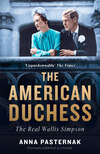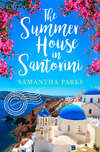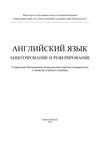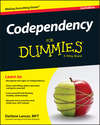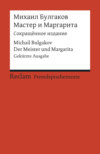Kitabı oku: «The American Duchess», sayfa 7
Sir Clive Wigram wrote that ‘the staff were horrified at the audacity of the statements of HRH. Apart from actually seeing HRH and Mrs S in bed together, they had positive proof that HRH lived with her.’ Tommy Lascelles said that he would find it as easy to believe in the innocence of their relationship as ‘a herd of unicorns grazing in Hyde Park and a shoal of mermaids swimming in the Serpentine’.
Despite the unravelling of their marriage, the Simpsons put on a brave front. That April, Ernest wrote warmly to his mother, keen to impress her with his royal connections and wanting to reassure her that all was well in his marriage:
My dearest one and only Mother,
The Prince took two other married couples and ourselves to the Grand National Steeple chase near Liverpool. We had a special car on the train and we were met by a fleet of motors. We lunched in state with Lord Sefton, the owner of the course and had a splendid view from his private stand. It was great fun.
Much, much love, in which Wallis joins, and a big hug,
Affectionately, Ernest.
At Easter, Ernest joined Wallis motoring around Cornwall with the prince, and their friends, the Hunters, to see the camellias and rhododendrons in bloom. According to Wallis, whatever Ernest was ‘thinking or feeling, he loyally played his part’. Whilst staying on the Duchy estate, Edward began penning Wallis intimate billets-doux, which he had delivered to her room. But a shadow was now cast over the trio. Where the arrangement had previously been chummily inclusive, Ernest was now excluded. Wallis and Edward were sufficiently emotionally entwined to have developed their own private language, which spelt out the intensity of their relationship. They referred to themselves as ‘WE’, representing their joint first names and symbolising their union. They also devised the adjective eanum, which to them meant tiny, ‘poor’, ‘affecting’ and ‘pathetic’. Edward wrote to Wallis from St Austell Bay Hotel, his note accompanying an Easter gift of a bracelet:
My [twice underlined] Eanum – My [thrice underlined] Wallis
This is not the kind of Easter WE want but it will be alright next year. The Easter Bunny has brought this from Us All [twice underlined] & Slipper says he likes it too but it has to be fitted and christened later. I love you more & more & more each & every minute & miss you so [thrice underlined] terribly here. You do too dont you my sweetheart.
God bless WE. Always your[s] [twice underlined].
Edward’s obsession for Wallis was causing him to act with increasingly rash indiscretion. Wallis would have received the letter, and the accompanying piece of jewellery, while sharing a room with Ernest. She, meanwhile, was no longer under any illusions that this was a romantic relationship that the prince seemed wholly committed to. The mounting tension between the trio finally erupted in a terrible row between Wallis and Ernest on their return from Cornwall. This provoked Wallis to write her first stern letter to the prince. It reveals how she by now fully assumed the role of disapproving mother, reprimanding a thoughtless naughty boy.
Tuesday a.m.
David dear –
I was and still am most terribly upset. You see my dear one can’t go through life stepping on other people … You think only of what you want and take it without the slightest thought of others. One can arrive at the same result in a kinder way. I had a long quiet talk with E last night and I felt very eanum at the end. Everything he said was so true. The evening was difficult as you did stay too late. Doesn’t your love for me reach the heights of wanting to make things a little easier for me. The lovely things you say to me aren’t of much value unless they are backed up by equal actions.
I was upset and also very disappointed in a boy – because David what are all those words if what they say isn’t enough for a little sacrifice on our part to do what is the right thing for all concerned. So far you have always come first in my actions if there had to be a choice (like Sat). It isn’t fair and cannot always be that way.
Sometimes I think you haven’t grown up where love is concerned and perhaps it’s only a boyish passion for surely it lacks the thought of me that a man’s love is capable of … Your behaviour last night made me realise how very alone I shall be some day – and because I love you I don’t seem to have the strength to protect myself from your youthfulness.
God bless WE and be kind to me in the years to come for I have lost something noble for a boy who may always remain a Peter Pan.
Those close to the couple could see the inherent insecurity in Wallis’s position. As Chips Channon wrote on 14 May, the day of the Silver Jubilee Ball: ‘She is madly anxious to storm society while she is still his favourite so that when he leaves her, as he leaves everybody in time, she will be secure.’ Chips continued to comment on the gossip fizzing about Wallis’s appearance later at the ball. ‘There is tremendous excitement about Mrs Simpson. It is a war of the knife between past and present. Officially I am on-side – but secretly delighted for she always was an appalling, selfish, silly influence. Mrs S has enormously improved the prince. In fact, I find her duel over the Prince of Wales between Mrs Simpson, supported by Diana Cooper, and strangely, enough, Emerald, and the _* camp, is most diverting. In fact, the romance surpasses all else in interest.’
Of the state ball, Wallis recalled that after the king and queen had made their entrance, the dancing began. ‘As David and I danced past, I thought I felt the king’s eyes rest searchingly on me. Something in his look made me feel all this graciousness and pageantry were but the glittering tip of an iceberg that extended down into unseen depths I could never plumb, depths filled with an icy menace for such as me.’ A chill ran through Wallis and in spite of being seen dancing the foxtrot with the Prince of Wales, ‘in that moment I knew that between David’s world and mine lay an abyss that I could never cross, one he could never bridge for me’.
Wallis kept up her jovial, reassuring front in her correspondence with Aunt Bessie. After the ball, she wrote of her evening, describing the diamond clips she received as a jubilee present. ‘The Prince danced with me after the opening one with the Queen so you see I am not neglected on the right things.’ She continued to regale her aunt with examples of her popularity, explaining that she was besieged by invitations. Wise to the situation she explained: ‘They think that in asking me they’ll get him.’ Before adding, tellingly: ‘It will be lovely when something happens to break it up.’
However, Edward had no intention of letting Wallis go. He later wrote: ‘A prince’s heart, like his politics, must remain within the constitutional pale. But my heart refused to be so confined; and presently and imperceptibly the hope formed that one day I might be able to share my life with her, just how I did not know.’ The prince and Mrs Simpson continued to storm society; while Special Branch continued to spy on Wallis; and the royal family made every effort to avoid her. The battle lines that Chips Channon referred to were drawn between the old guard traditionalists (chiefly King George V, Queen Mary, the Duke and Duchess of York and Princess Marina) and the pro-Wallis camp (which included the Prince of Wales, the Duke of Kent, Lady Cunard, Lady Colefax, Chips Channon, the Duff Coopers, Cecil Beaton and Winston Churchill).
Later that May, on Empire Day, Chips Channon wrote in his diary: ‘We had cocktails at Mrs Simpson’s little flat in Bryanston Court. The Prince was charm itself. He is boisterous, wrinkled and gay. His voice is more American than ever. (It doesn’t matter, since all the Royal Family except the Duke of Kent have German voices.) He wore a short black coat and soft collar, checked socks and a tie … He shook and passed the cocktails very much the jeune homme de la maison.’
A few nights later, Chips joined the prince and ‘the ménage Simpson’ in Emerald Cunard’s box at the opera. He noted the positive influence and mesmeric hold Wallis had over the heir to the throne. It was she who chided Edward to leave, reminding him not to be late in joining the queen for a ball. As he left, she removed a cigar from his breast pocket, admonishing: ‘It doesn’t look very pretty.’ The party noted that the prince left but was back within half an hour.
Wallis’s reign at the Fort was similarly in its zenith. That summer Lady Diana Cooper and her husband, Duff, were weekend guests. ‘We arrived after midnight (perhaps as chaperones),’ recalled Lady Diana:
Jabber and beer and bed was the order. I did not leave the ‘cabin’s seclusion’ until 1 o’clock, having been told that no one else did. HRH was dressed in plus-twenties with vivid azure socks. Wallis, admirably correct and chic. Me bang wrong! Everything is a few hours later than other places (perhaps it is American time). A splendid tea arrived at 6.30 with Anthony Eden and Esmond Harmsworth [son and heir of Lord Rothermere]. Dinner was at 10. Emerald arrived at 8.30 for cocktails, which she doesn’t drink although the prince prepares the portions with his own poor hands and does all the glass-filling. The Prince changed into a Donald tartan dress-kilt with an immense white leather purse in front, and played the pipes round the table after dinner, having first fetched his bonnet. We ‘reeled’ to bed at 2 a.m.
While the British press had yet to write anything about the royal romance, keeping the public completely in the dark about the affair, American publications were less reverential and inhibited. That June, Wallis wrote to Aunt Bessie who was ‘upset by Hearst [Newspapers’] reporters lies’. She tried to put her aunt’s mind at rest. ‘You know I am not going to get a divorce. Ernest and I are perfectly happy and understand each other so please put it all out of your head and tell people they can’t believe the press.’
It was not just the whispers in the press that were mounting. Superintendent Canning’s report, delivered to the Metropolitan Police Commissioner Sir Philip Game on 3 July, not only alleged that Wallis was having an affair with Guy Trundle; it also speculated about a controversial liaison between Wallis and Joachim von Ribbentrop, Hitler’s ambassador to Britain. The relentlessly charming von Ribbentrop, a former wine salesman, had for the last two years been peddling the Third Reich to the British aristocracy. He cultivated Lady Cunard as a route to the Prince of Wales. In June, Wallis and the prince had met von Ribbentrop at a large gathering at Emerald’s. Winston Churchill, also in attendance, listened as the German droned on about the achievements of the Führer. When he left, Churchill turned to his hostess and said: ‘Emerald, I hope we never have to hear that broken gramophone record again.’
Chips Channon noted in his diary: ‘much gossip about the Prince of Wales’s alleged Nazi leanings; he is alleged to have been influenced by Emerald (who is rather eprise with Herr Ribbentrop) through Mrs Simpson. He has just made an extraordinary speech to the British Legion advocating friendship with Germany; it is only a gesture, but a gesture that may be taken seriously in Germany and elsewhere. If only the Chancelleries of Europe knew that his speech was the result of Emerald Cunard’s intrigues, themselves inspired by Herr Ribbentrop’s dimple!’
In July, Edward took part in a naval review in the Channel. His separation from Wallis inspired him to write to her at one o’clock in the morning on board his ship:
A boy is holding a girl so very tight in his arms tonight … A girl knows that not anybody or anything can separate WE – not even the stars – and that WE belong to each other for ever. WE love [twice underlined] each other more than life so God bless WE. Your [twice underlined] David.
For his August holiday that year, the prince rented the Marquess of Cholmondeley’s summer residence, Villa Le Roc, in Cannes. As Edward was not allowed to receive gifts from his subjects, he paid George Rocksavage a token £5 for the fortnight’s stay. Wallis wrote to Aunt Bessie of the villa, with its pretty terraced gardens bursting with zinnias and plumbago: ‘We got here on Monday to find a lovely villa on the water – our own rocks and all the privacy in the world but very hot.’ The Duke of Westminster’s yacht, Cutty Sark, was at their disposal. Again, Wallis accompanied the prince without Ernest. Ernest absented himself because his mother was visiting him in London, then he was due on business in America. Wallis gushed to her aunt: ‘My party consists of Lord and Lady Brownlow, Buists, Mrs Fitzgerald and Lord Sefton. Très chic. E is quite content for me to go as he can do nothing for me in the way of a holiday.’ She ends her missive asking her aunt to go and see her husband when he is in the States. Ernest, she reveals, ‘is still the man of my dreams’.
John Aird, who was in attendance on the trip, was alarmed when, on arrival at the villa, the prince rushed in and gave the best bedroom to his equerry, apportioning himself ‘a rotten little room next to W’. An hour later the decision was reversed. ‘At whose suggestion I do not know,’ recorded Aird. Most likely Wallis’s, given that only she could steer the prince towards more dignified behaviour. Indeed, the couple’s correspondence during the trip bears witness to Wallis’s eye for detail. She writes to him from her room in the morning, suggesting that as they have a lunch for ten later that day, including with Sir Robert Vansittart, the permanent undersecretary at the Foreign Office, it would be more comfortable if the butler could organise ‘chairs without arms’. As well as seating plans, menu plans – ‘I didn’t see a green vegetable on the menu’ – she explains: ‘I like everyone to think you do things well.’
Wallis always needed to be in control. ‘She liked to know exactly what was going on,’ said Hugo Vickers. ‘Later in their life together, if someone dropped a plate in their house in the French countryside and the Duchess was in Paris, she would know as if by radar. She said to her butler: “If something breaks, please tell me. I won’t mind but please always let me know.” She was incredibly straightforward like that and her staff adored her for it.’ Indeed, a kitchen maid who later worked for Wallis attests to this: ‘All the maids spoke well of Mrs Simpson.’
Oblivious to the dramatic extent of it, Wallis, with her maternal chiding, vigilant housekeeping, lack of sycophancy, genuine intelligent interest in Edward’s official duties and air of assured competency, had become indispensable to the prince. She was his oxygen. Without her, Winston Churchill observed, he was haggard and dejected. By the end of the long summer holiday, having stretched their European sojourn through to October, Edward knew that he wanted to marry her. How he would realise this became his principal obsession. ‘It was all quite vague but nonetheless vivid,’ he later wrote. ‘This dream of being able to bring into my life what for so long had been lacking.’ He intended to discuss the matter with his father that autumn. Meanwhile, he wrote to Wallis, pleading with her not to forsake him: ‘Please, please Wallis don’t get scared or loose [sic] faith when you are away from me. I love you more every minute and no difficulties or complications can possibly prevent our ultimate happiness.’
His obsessive desire for Wallis now left no room for Ernest. ‘I do hate and loathe the present situation … and am just going mad at the mere thought (let alone knowing) that you are alone there with Ernest. God bless WE forever my Wallis. You know your David will love you and look after you so long as he has breath in his eanum body.’
* When Chips Channon’s diaries were published in 1967, his views on the royal family were seen as so controversial that certain names were redacted. In this instance it is likely that he is referring to the Duchess of York and then the battle between the king’s camp and the York camp, which would include the attitude of the king and queen.
4
God Bless WE

The prince’s attempts to speak to his father at any length about his personal life were thwarted by events. On 6 November 1935, Edward’s brother, Prince Harry, was married in the private chapel at Buckingham Palace to Lady Alice Scott. Eminently suitable, she was the third daughter of the king’s friend, the Duke of Buccleuch. Sadly, the duke died just before the wedding, rendering it a quiet affair. Queen Mary recorded in her diary how charming the bridesmaids looked: ‘Lilibet and Margaret* looked too sweet.’ In his diary, King George wrote: ‘Now all the children are married but David.’ In a state of resigned despair, weakened by concerns over Edward’s private life, he memorably said: ‘I pray to God my eldest son will never marry and have children, and that nothing will come between Bertie and Lilibet and the throne.’
Later that month, the general election saw the National Government return to power with a reduced majority, and Stanley Baldwin enjoying his third term as prime minister. The prince sensed that his father was too engrossed with the political aspect of his duties to be disturbed. Then, a bitter blow befell the royal family. On the day that the seventy-year-old king was due to open Parliament, his favourite sister, Princess Victoria, died. The siblings were exceptionally close; King George would begin each day with a telephone call to her at her Buckinghamshire house, Coppins, in Iver, at 9.30 a.m. Weighed down by grief, it was the first time in his life that the king had cancelled a state ceremony. His health rapidly deteriorated and he never appeared in public again. His family believed that the loss of his beloved sister sounded his own death knell.
Aware that King George’s life was ebbing away, all efforts were made by the family to try and ensure that Christmas at Sandringham was especially memorable. In the White Ballroom, nine-year-old Princess Elizabeth romped around the Christmas tree with her younger sister Margaret, their childish effervescence lightening the sombre mood. Edward, the only family member not to have a spouse by his side, felt ‘detached and lonely’. He later wrote: ‘my brothers were secure in their private lives; whereas I was caught up in an inner conflict and would have no peace of mind until I had resolved it’. On Boxing Day he wrote to Wallis from Sandringham: ‘I couldn’t believe it was possible to miss this way but it’s so lovely although hell while it lasts. It really is terrible here and so much the worst Xmas I’ve ever had to spend with the family … Oh! to be alone for ages and ages and then – ages and ages. God bless WE sweetheart but I’m sure he does – he must. Your David.’
Wallis and the prince saw in the new year together at a house party at Melton Mowbray, hosted by their friends the Buists. Both dressed as pirates for the evening fancy dress gala. Ernest was again absent – he had travelled to Canada for business. The prince’s need for Wallis to be permanently at his side was now insatiable. On New Year’s morning he sent a note to her room: ‘Your lovely New Year message helped a boy a lot in his lonely drowsy and he was feeling sad … Oh! my Wallis I know we’ll have Viel Glück to make us one this year.’
The deteriorating health of the king dominated the thoughts of the nation over New Year. Suffering from a chronic bronchial complaint, King George continued his daily habit of riding out on his white pony, Jock. With Queen Mary walking beside him, he looked his last upon the gardens and grounds of Sandringham; the home he had enjoyed most in the world.
On 16 January, Edward hosted a day’s shoot in Windsor Great Park. Duff Cooper noted that the Prince of Wales was ‘in the highest spirits’. It was snowing and bitterly cold when the party broke for lunch at the Fort. That afternoon, the prince received an urgent note, while still in the field, from his mother. ‘I think you ought to know that Papa is not very well,’ she had written. Lord Dawson, the king’s physician, was ‘not too pleased with Papa’s state at the present moment’. The note was carefully worded so as not to arouse undue concern in the heir to the throne, while she was similarly anxious that his sudden arrival must not alert the suspicions of the king to his own perilous condition. Edward hastened back to the Fort, where Wallis was waiting for him, and silently handed her the note. As she was reading it, he telephoned his pilot to tell him to have his aeroplane ready to fly him the following morning to Norfolk.
At Sandringham, he found his father sitting in front of the fire in his old Tibetan dressing gown, gazing through the window at the church tower jutting above the leafless winter trees.
On Saturday night, as all the members of his family were gathering, Edward wrote to Wallis, his longing and loneliness palpable:
My own sweetheart,
Just a line to say I love you more and more and more and need you so to be with me at this difficult time. There is no hope whatsoever for the king it’s only a matter of how long … But I do long long [sic] to see you even for a few minutes my Wallis it would help so much … You are all and everything I have in life and WE must hold each other so tight. It will all work out right for us. God Bless WE.
That evening, Chips Channon wrote: ‘My heart goes out to the Prince of Wales tonight, as he will mind so terribly being King. His loneliness, his seclusion, his isolation will be almost more than this highly strung and unimaginative nature can bear. Never has a man been so in love … How will they arrange their lives, these people?’
On Sunday 19 January, Edward drove up to London to inform Mr Baldwin that the king was dying – expiring painfully from bronchitis. The prince joined Mr and Mrs Baldwin for tea at No 10 Downing Street. The heir apparent appeared unmoved when Stanley Baldwin announced: ‘I wonder if you know, Sir, that another great Englishman died yesterday?’ The prince, no great fan of literature, was unaware that it was Rudyard Kipling, Baldwin’s first cousin.
The following day, Queen Mary recorded in her diary: ‘G. about the same, sat with him from time to time – did not go to church as the place was surrounded by reporters & photographers, too heartless.’ Meanwhile, privy councillors gathered in the king’s study as the red dispatch boxes piled up; matters of state would wait for no one, not even death. The dying king was propped up in a chair and, with a shaky hand, pen held in place by Lord Dawson, managed two marks to appoint a Council of State, comprising the queen and their four sons. Edward recalled: ‘Signing documents provided a distraction from the strain of waiting. It is a harrowing experience to watch anyone die, let alone one’s father, and especially when one’s father is king. When a king starts to die, the whole world crowds in for the death watch. Inside the Big House a sad quiet came over our family circle.’
Cosmo Lang, the Archbishop of Canterbury, later recorded that at tea time on Monday 20 January, the Prince of Wales was ‘touchingly attentive to the Queen’.
Soon afterwards, a news bulletin was issued to announce that ‘the king’s life is moving peacefully towards its close’. Dawson had already taken the precaution of telephoning his wife in London to ask Lady Dawson that she ‘advise The Times to hold back publication’. This was to ensure that the death was reported in respectable morning papers rather than in ‘the less appropriate evening journals’. At eleven o’clock in the evening, Lord Dawson gave the king two injections; a mixture of morphine and cocaine to hasten his passing.†
At five to midnight the king died. No sooner had King George V died than Queen Mary, with characteristic sangfroid, took the hand of her eldest son and kissed it. Edward’s brother George, Duke of Kent, who was standing beside her, stepped forward and followed her example. Although he recognised that this form of homage was by custom his due, Edward was momentarily embarrassed by it. ‘Nevertheless, these two spontaneous gestures served to remind me, however needlessly, that I was now King.’ He was His Most Excellent Majesty Edward the Eighth, by the Grace of God, of Great Britain, Ireland, and the British Dominions Beyond the Seas, King, Defender of the Faith, Emperor of India.
The new king began crying hysterically. His sudden undignified outburst of grief stunned his family. He kept embracing his mother, weeping against her. Was he lamenting his father or mourning the biting reality of his new position? His emotion was ‘frantic and unreasonable’, wrote an appalled Helen Hardinge, wife of King George’s assistant private secretary. ‘In its outward manifestation, it far exceeded that of his mother and three brothers, although they had loved King George at least as much as he had … While he demanded attention for his own feelings, he seemed completely unaware of those of others.’
Shortly afterwards, Edward left his family and went to telephone Wallis, who was dining with friends, the Lawson-Johnstons, after a charity film premiere. ‘It’s all over,’ he told her. ‘I could think of nothing better to say than, “I’m so very sorry”,’ Wallis later recalled. Grief and its close ally, shock, create the most uncharacteristic individual reactions. The future monarch had barely left his father’s deathbed when he ordered that the clocks at Sandringham, which had always been kept half an hour fast to give extra daylight for shooting, be put back to normal time. ‘I wonder what other customs will be put back also,’ ruminated a concerned Cosmo Lang.
King Edward VIII immediately broke with tradition by flying to London – the first time a British monarch had travelled in an aeroplane – and further surprised courtiers by watching his own proclamation ceremony, in which he was declared king-emperor, from a window in St James’s Palace, Wallis and Ernest standing close behind him. As he surveyed the historic scene, with mace bearers and trumpeters in state dress and the ‘tremendous words rolled out’, Edward was ‘swept by conflicting emotions. There was a flash of pride in becoming King-Emperor of the vast and liberal Commonwealth I knew so well. At the same time these words seemed to tell me that my relations with Wallis had suddenly entered a more significant stage.’ As they walked away, Wallis turned to Edward. ‘It was all very moving,’ she said. ‘But it has also made me realise how different your life is going to be.’
Chips Channon wrote of the proclamation: ‘It was a fleeting brilliant ceremony … Afterwards, I saw a large black car (the king’s) drive away, with the blinds pulled half down. The crowd bowed, thinking that it contained the Duchess of Kent but I saw Mrs Simpson.’ Like the rest of society, Chips was ‘riveted by the position of Mrs S. No man has ever been so in love as the present King but can she be another Mrs Fitzherbert?‡ If he drops her she will fall – fall – into the nothingness from whence she came but I hope he will not, for she is a good kindly woman, who has had an excellent influence on the young monarch.’
On 20 January, Stanley Baldwin called Duff Cooper into the Cabinet Room at 10 Downing Street. To Duff’s surprise, Baldwin wanted to talk to him about the prince’s relationship with Mrs Simpson. ‘If she were what I call a respectable whore, I wouldn’t mind,’ Baldwin told Cooper. Cooper assumed that he meant somebody whom the prince occasionally saw in secret but did not spend his whole time with.
‘It was perfectly alright for a gentleman to have affairs with married ladies, not girls, always married women,’ explained Duff Cooper’s son, John Julius Norwich. ‘People knew that affairs were going on and they put people next door to each other in country house weekends. That was fine. What mattered was the way that things looked. It was the outside show that counted and appearances had to be maintained.’
In his meeting with the prime minister, Stanley Baldwin suggested to Duff that he tell Mrs Simpson ‘to clear out – for a bit at any rate’ as he felt that that ‘would be the best thing that could happen’. Cooper decided that he would ‘certainly do nothing of the kind. She would tell the prince who would never forgive me.’
Later that day, the prince received an idolatrous letter from Ernest Simpson. Characteristic of Ernest’s decency, despite the fact that the new king was responsible for the collapse of his marriage, he wrote to his monarch as his ‘devoted, loyal, subject’. A dignified Ernest offered him the ‘warmest sentiments that friendship can engender’. Ernest ‘has of course been marvellous about it all’, Wallis wrote to Aunt Bessie. ‘He has the makeup of a saint and is much too good for “the likes of me”.’
On 23 January, Edward marched with his brothers behind the gun carriage taking the body of their father to lie in state at Westminster Hall. The new king, who at forty-one still appeared boyishly young, looked lost and bewildered, dwarfed in a heavy, long overcoat. As the cortège made its way into New Palace Yard, the jewelled Maltese Cross on top of the Imperial Crown – set with a square sapphire, eight medium-sized diamonds and 192 smaller diamonds – came loose. The jolting of the heavy gun carriage caused it to fall to the ground. Out of the corner of his eye, Edward caught sight of a flash of light dancing upon the pavement. He resisted the urge to retrieve the cross, resolutely marching on, barely breaking step, as a Grenadier Guardsman scooped up the cross with one hand and dropped it into his pocket. This strange occurrence was considered a bad omen. ‘Christ! What will happen next?’ King Edward was heard to say. ‘A fitting motto,’ MP Walter Elliot remarked to his companion, ‘for the coming reign.’
Ücretsiz ön izlemeyi tamamladınız.
